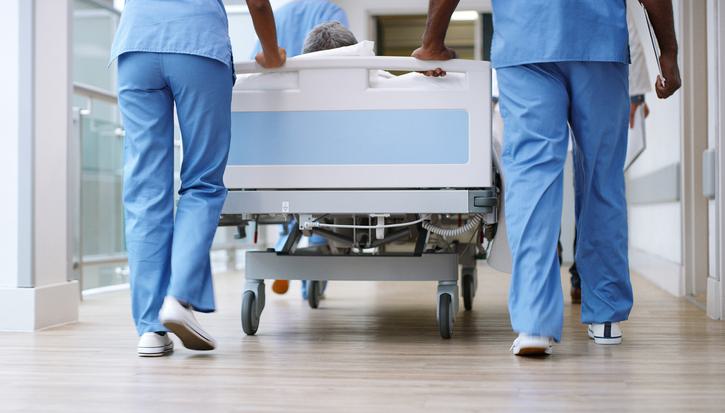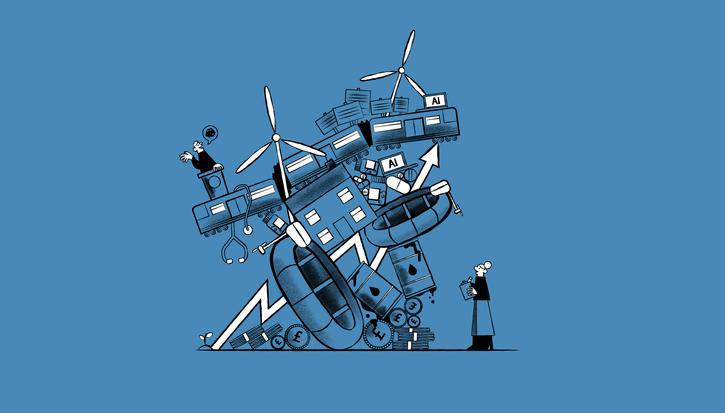Searching for the crisis: A response to David Runciman
Article
There are some hints. He observes that 'the recovery since the crash of 2008 has been the slowest of modern times'. This climate of 'distress' may suggest that we need a different politics. But that claim would only hold if there was no proper political debate about alternative economic policy within our present institutions.
Yet that doesn't feel like a good description of where we are. Since the crash, the toolkit of economic policymaking has been broad enough to include everything from nationalisation to privatisation, from government guarantees of private lending to a new and radical looseness in monetary policy. And all of that has been done by the governing Coalition; others in the political system have had more and different proposals to make. It's a mark of how innovative our politics has become in recent years that none of the ideas just mentioned cause much of a frisson in political discussion now, whereas they would have 30 years ago and they still do in many of our peer economies. If anything, we are too relaxed about folding back the limits of our politics; the risk of making economic policy with the same confidence that we did through the boom from the early 1990s to 2007 is that we don't notice some of the problems we may be storing up for the future.
But there must be more to Runciman's case for political transformation than economics. The second element of his diagnosis is what he calls 'institutional mistrust'. The cause of this, as he puts it, is that 'over the past five years the standing of many of the central institutions of British public life has been undermined'. The banks, parliament, the press, the police, the BBC and the secret services, all are in the grip of 'a permanent state of scandal'. And this isn't a run of bad luck for our public institutions, it's symptomatic of 'a growing sense of impunity among small networks of elites'. If that's true, then this would be a powerful enough reason for transforming politics too.
The problem with this part of his essay isn't that he's wrong - I agree that some of the institutions he mentions are beset by elitism and its discontents. Here too my criticism is that we can envisage new forms of these institutions, changes, corrections, new patterns of checks and balances, within our existing political system rather than waiting for transformation; and indeed in some cases we already have. Parliament is a good example. The system by which MPs claim expenses has been comprehensively reformed with responsibility for setting even their pay and pensions now resting with an independent body, which incidentally is being criticised by the three main party leaders not for giving their MPs a hard time, but for trying to be too generous to them on their pay (a policy intended to ensure a diverse and talented range of people in parliament).
Runciman suggests that, during what he styles our last period of crisis - the 1970s - there were rogue forces within the secret services who sought to organise a coup. As he puts it, 'there were dark mutterings about the incapacity of the democratic British state to meet the challenges that it faced'. I wonder if Runciman himself from the bastion of a Cambridge college is flirting with that same fantasy, the idea that if only the crisis had been a bit stronger, our politics a bit less resilient, then we'd have a true transformation. Into what, he doesn't say. What the costs of that coup would be, he doesn't even mention.
Frankly, I much prefer the alternative that we have chosen, an unromantic but adaptable politics, within which there is much to do. And yes, sometimes it will feel like there is too much to do. But these are things that we can figure out. The real danger doesn't arise unless we lose our ability to imagine a better future within the politics we have. And we're a long way from exhausting those possibilities.
Related items

Bridge to the future: how to get the NHS through the winter and ready for reform
NHS staff across the country are gritting their teeth. Christmas parties have come and gone, but a more threatening annual tradition looms once again – the NHS ‘winter crisis’. This period, renowned for long waits and increased mortality,…
The great enabler: transport’s role in tackling environmental crises and delivering progressive change
In this special issue of IPPR Progressive Review we bring together leading political, academic and civil society thinkers to consider transport in modern Britain and its role in delivering a healthier, greener, more prosperous and…
The shape of devolution
How do we create transparent, fair and practical footprints for local power across England?